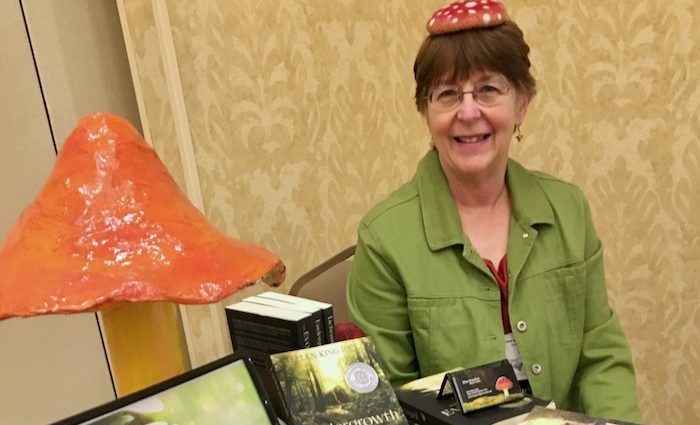Because I am writing to provide insights and information, I have never doubted that what I was doing had worth.
That’s huge!
I really do think it empowers people to know about ecology, history and how systems function.
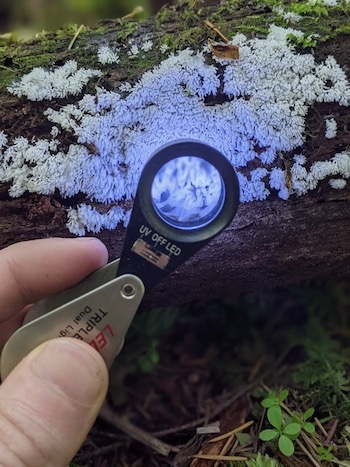
How a Writer Sees Criticism
The biggest emotional challenge is right-sizing feedback.
For some odd reason, a compliment floats in like a feather while a criticism lands like a falling anvil.
I can scarf down a compliment like potato chip and look around for . . . bags and bags more. Honestly, I could hire a Greek chorus to sing kudos for days and still feel a bit peckish for more praise.
My World is a Tiny Slice of the Universe
I work to remind myself that it is a busy, chaotic world.
No matter how hard I try, my stuff will only appeal to a subset of readers. When a kind or glowing word is directed to me, I work hard to slow down and not brush by that moment.
I call it, “Getting a payday.”
And I work to connect with nature through daily walks.
When an anvil-ugly comment comes in, it’s good to be aware how insignificant it is to the rough-skinned newt who is busy finding his way up a tree trunk.
My world is a tiny slice of the universe.
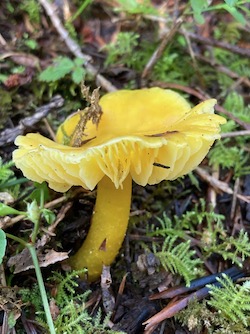
Why We’re Hungry After Sitting at the Computer
By far the MOST important thing for me has been understanding that our cells have movable glucose gates.
When we are still, our cells move glucose gates on the cell membranes (think “delivery doors”) to the interior of the cell.
When your delivery docks have disappeared, there’s no path for “food” to come in from passing blood cells.
When we move about, the gates return to the perimeter and re-open for the business of taking up supplies.
This is WHY we are hungry after sitting at the computer or on the sofa. We can have plenty of calories “in storage,” but the delivery has been bungled.
If we get up and move for fifteen minutes, the glucose gates are moved into position and delivery recommences.
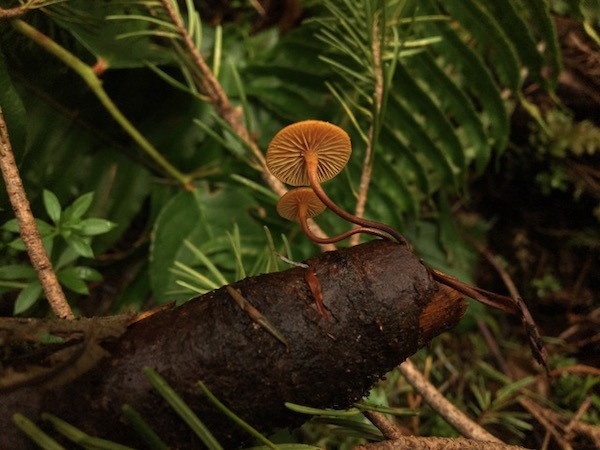
Why are we built this way? The system works great if you are a leopard lounging in a lumbago tree. The quiet cells are conserving energy so the leopard is sipping from supplies while resting. When a prey animal nears, the leopard can shift into action and the glucose gates respond with a rush to the perimeter to take up sugar for a successful hunt.
All this doesn’t work so well for the modern writer. Our minds and fingers can be busy but that work doesn’t get glucose delivered (or out of storage). We have to move. Or nosh . . . to feed the cells.
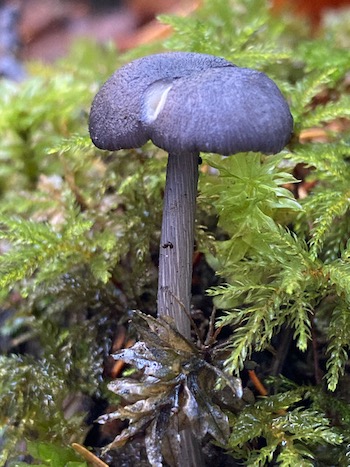
Why I Feel Inspired by Mushrooms
I needed a biological trigger for my first story (an older woman doesn’t break out with chin hairs. She breaks out in feathers!).
I was walking around, thinking, when I saw a spider’s web. Maybe she was bitten by a spider? Doh! That’s been done.
But underneath the spider’s web was a cluster of mushrooms sprouting on a log. Maybe she ate a mushroom?
I went home to look up “mushrooms of the Pacific Northwest” and . . . the internet threw up in my lap. My God. There are thousands of mushrooms here! I can write stories for years!
Top 3 Things I’ve Learned About Self-Publishing
1. Paying for professional cover design is a smart move.
2. Keeping track of expenses can be depressing but also a goad to be smart about choices.
3. “Compare and despair” is real. It doesn’t matter what someone’s fourth-cousin-twice-removed has accomplished. What matters is that you learned something today.
My Most Successful Book Marketing Technique
Wearing a hat with a mushroom theme helps me sell books (when selling in person).
As noted in the featured image above, a funky display and a mushroom-centric hat help to start conversations, which also helps sell books.
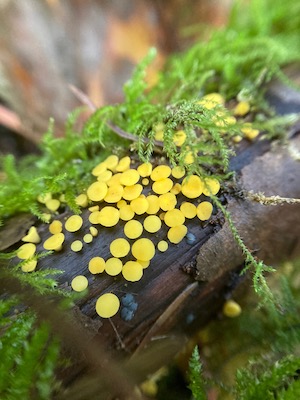
Losing Myself in a Project Diminishes the Pain
I have a disability and work my writing in around how I am feeling. I do find an accountability journal helps me do SOMETHING most days.
I have a lot of chronic pain, and I know that losing myself into a project diminishes the pain.
Advice for a Young Writer: Learn the Tools of the Trade
Go to conferences, take on-line seminars, read books on writing and keep learning the tools of the trade.
In many ways, writing is like home maintenance and repair. Learning the names of the tools and how and when they are used is really helpful. (Of course, there will always be someone nearby who has a bigger, snazzier tool kit.)
I would also say that advice isn’t gospel. Young people often think of faster, cooler, shrewder ways to do things.
And if you end up with a face planted in the grass, please look for fungi and nematodes while you have your eyeballs full of dirt.
There’re always some interesting things happening at ground level.
* * *
Ellen King Rice is a wildlife biologist who loves the science, drama and diversity of life in the woods of the Pacific Northwest. A slow walker with a disability, she especially enjoys encountering cryptic species.
For more information on Ellen and her work, please see her website, or connect with her on Instagram.
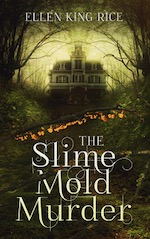 The Slime Mold Murder: At nineteen, Dylan’s brilliant mind is an asset as he struggles with severe ADHD and deteriorating living conditions. He’s one semester away from completing his college degree in ecology, but he’s out of cash, out of soap, and about to be evicted.
The Slime Mold Murder: At nineteen, Dylan’s brilliant mind is an asset as he struggles with severe ADHD and deteriorating living conditions. He’s one semester away from completing his college degree in ecology, but he’s out of cash, out of soap, and about to be evicted.
A post-pandemic opportunity to survey a rural property sounds like a lifeline. The owner of a creepy faux-chateau is ready to pay a handsome wage for a list of species found on the property. Dylan can’t believe his good luck. He’s about to be paid to wander in the woods. How hard can it be to make a plant list?
Dylan’s contract is threatened when a body is found in the woods. Dylan seeks the reason for the death, but his lightning-fast mind is constantly undermined by his poor executive functioning. He can discourse eloquently on the significance of Chaucer’s The Canterbury Tales, but he can’t find his wallet. He longs to adopt an orphaned West Highland terrier, but he’s not sure he’d remember to feed a dog. He certainly can’t afford a bag of dog kibble, much less the repairs needed on his vintage Honda.
How can Dylan’s intuitive grasp of ecology and the complex life cycles of the Myxogastria help to expose a killer? And how does he protect his friends and a small, confused dog from those who eagerly embrace violence?
Available on Amazon.
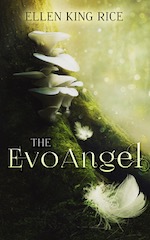 The EvoAngel: Wild mushrooms hold secrets in their DNA, including the keys to human transformation.
The EvoAngel: Wild mushrooms hold secrets in their DNA, including the keys to human transformation.
In this fast-paced science-based thriller, an elderly mushroom hunter must open her secretive life to outsiders as she faces an unexpected body change. Edna Morton is producing feathers.
As Edna mulls her complicated family history and old stories of witches, she must avoid an ambitious physician who wants control of Edna’s body. For the doctor’s work, a dead body will do.
Mycology, epigenetics and evolutionary development mix with sex, violence and jaw-dropping betrayals in this modern-day story of angels and family.
Available on Amazon.

